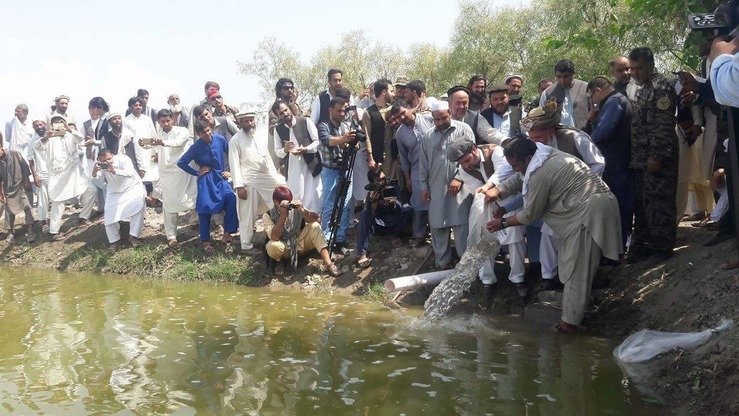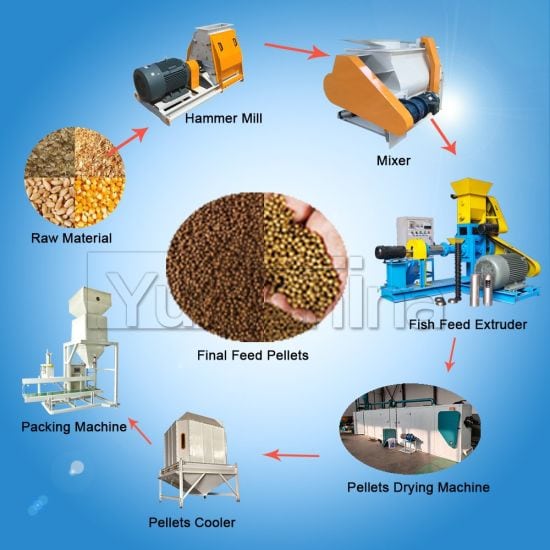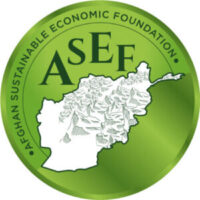Sustainable Developmental Projects
ASEF is committed to promoting sustainable economic development and improving livelihoods through long-term charitable investment in various sectors of Afghanistan. As the poverty rate has reached 97% in 2022 (OCHA), we believe that only sustainable jobs can remedy this endemic poverty. Thus, ASEF invests in sector development to spur job groups.
ASEF conducts thorough research at different stages to ensure quality outcomes. Our investment approach involves understanding the complexities of a sector and incrementally increasing investment with success across its various layers. Our current focus and investment is in the fish farming sector (details below).
Fish Farms
After in-depth research, ASEF has decided to pursue building pilot project fish farms this year (2023), with the objective of scaling it to 25 to 30 fish farms the following year. Some of the key benefits from this initiative are as follows:
- Provide Afghans with sustainable jobs and skills.
- Strengthen food security.
- Minimize reliance on foreign imports of fish (currently 65% to 70% imported).
- Increase protein output within the country which is severely lacking
Develop the fish farming ecosystem (civil work, fencing, excavators, compacting, etc).
ASEF intends to reinvest the profits from the fish farms through a revolving fund to further expand and develop the fish farming sector.
Background Info – Since July 2022, ASEF conducted in-depth research to understand the fish farming sector in Afghanistan. ASEF engaged with around 30 different fish farmers in Afghanistan to study the sector, its challenges, success stories, and gaps in the market. In addition, ASEF hired an expert consultant to conduct a feasibility study, which provided an understanding of both the macro and micro economics of fish farming in Afghanistan. It also delved into the socio-economic aspects of fish farming. Although fish farming has significantly increased in Afghanistan over the years, with over 3,000 fish farms across the country (55% increase in Kunduz and 40% increase in Kandahar in 2022), nearly 70% of fish is still imported into Afghanistan. ASEF’s objective is to strengthen the entire fish farming sector in the long term. The following projects include elements of the sector that we plan to further develop.
Fish Hatchery
Afghanistan's fish farming sector is growing, but the lack of local fish hatcheries has led to reliance on imports, limiting self-sufficiency. ASEF’s Fish Hatchery Development Project addresses this gap by bringing international expertise to establish a local hatchery, boosting food security, reducing imports, and creating economic opportunities. The project includes training local farmers, partnering with international experts, and building hatchery infrastructure, with operations and training expected to begin by the end of 2025. Refer to our annual project report for further details.

Fish Farmers Association
Fish Farmers Association – Taking a holistic approach to develop a sustainable fish farming sector, ASEF also intends to help establish the first fish farmers association in Afghanistan to support the following:
- Volume purchasing for higher discounts – Help fish farmers buy fish feed and fingerlings collectively for higher discounts.
- Knowledge sharing – Learn from each other on improving performance and yield.
- Exchanging and expanding skill set.
- Identifying shared challenges and engaging in the process to collectively resolve them.
- Increasing potential for partnership engagements and collective collaboration to build fish feed mills and/or fish hatcheries.

Mommy & Me Project
The “Mommy & Me” project offers education and economic opportunities to impoverished families, focusing on women and children. In its first phase, children aged 10-12, previously living on the streets, graduated from a program combining school subjects and Islamic studies, while mothers received vocational tailoring training. The next phase involves funding a storefront for selling tailored goods and creating partnerships with local businesses to ensure long-term sustainability and growth for these women and their community.
Computer Lab for Three Orphanages
ASEF established three computer labs in orphanages across Nangarhar, Kabul, and Kunduz provinces in Afghanistan, providing necessary equipment like chairs, desks, laptops, and LCD monitors. This initiative empowered 120 orphans with access to modern technology, enabling them to develop crucial computer skills. It also offered them opportunities for online e-learning, enhancing their education and future job prospects.
Future Intended Initiatives

Fish Feed Mill
Based on our research, Afghanistan currently has no factories that produce fish feed for fish farmers. The majority of fish food is imported, and some fish farmers make their own fish food at an ad-hoc level. It is our hope and endeavor that Afghanistan develops its own fish feed mills in the future to achieve a greater level of self-reliance. Establishing a fish feed mill in Afghanistan would cost around 200K USD, and while we currently do not have any plans or funds to pursue this endeavor, we do hope that in the future we will be able to do this.
Tele-Health
The need for an innovative tele-health model for Afghanistan is more pressing than ever before. With decades of conflict, political instability, and limited access to healthcare, Afghanistan faces significant challenges in providing quality healthcare to its population. A tele-health model, which utilizes digital technologies to provide healthcare services remotely, could be a game-changer for the country. Such a model could help to overcome barriers to healthcare access, particularly in remote areas, and could improve the quality and efficiency of healthcare services. Additionally, tele-health could help to address shortages of healthcare workers in the country, by enabling remote consultations and training. An innovative tele-health model tailored to the specific needs and challenges of Afghanistan could have a significant impact on the health and well-being of its people, and could help to build a more resilient and sustainable healthcare system in the country.

